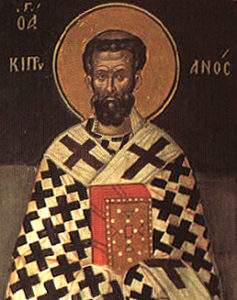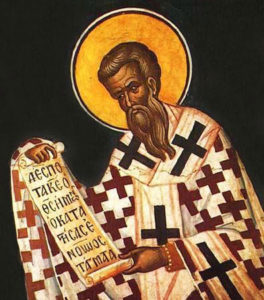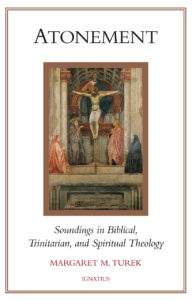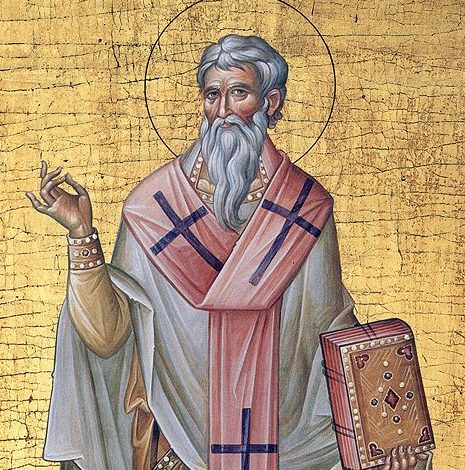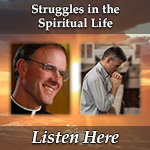Podcast: Play in new window | Download (Duration: 3:23 — 2.4MB) | Embed
Subscribe: Apple Podcasts | Spotify | Amazon Music | Android | Pandora | iHeartRadio | JioSaavn | Podchaser | Gaana | Podcast Index | Email | TuneIn | Deezer | Anghami | RSS | More
From a homily by Saint Asterius of Amasea, bishop
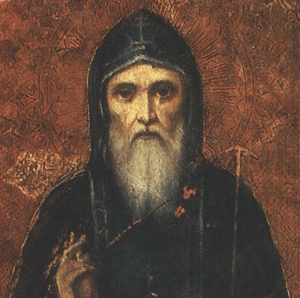
Be shepherds like the Lord
You were made in the image of God. If then you wish to resemble him, follow his example. Since the very name you bear as Christians is a profession of love for men, imitate the love of Christ.
Reflect for a moment on the wealth of his kindness. Before he came as a man to be among men, he sent John the Baptist to preach repentance and lead men to practise it. John himself was preceded by the prophets, who were to teach the people to repent, to return to God and to amend their lives. Then Christ came himself, and with his own lips cried out: Come to me, all you who labour and are overburdened, and I will give you rest. How did he receive those who listened to his call? He readily forgave them their sins; he freed them instantly from all that troubled them. The Word made them holy; the Spirit set his seal on them. The old Adam was buried in the waters of baptism; the new man was reborn to the vigour of grace.
What was the result? Those who had been God’s enemies became his friends, those estranged from him became his sons, those who did not know him came to worship and love him.
Let us then be shepherds like the Lord. We must meditate on the Gospel, and as we see in this mirror the example of zeal and loving kindness, we should become thoroughly schooled in these virtues.For there, obscurely, in the form of a parable, we see a shepherd who had a hundred sheep. When one of them was separated from the flock and lost its way, that shepherd did not remain with the sheep who kept together at pasture. No, he went off to look for the stray. He crossed many valleys and thickets, he climbed great and towering mountains, he spent much time and labour in wandering through solitary places until at last he found his sheep.
When he found it, he did not chastise it; he did not use rough blows to drive it back, but gently placed it on his own shoulders and carried it back to the flock. He took greater joy in this one sheep, lost and found, than in all the others.
Let us look more closely at the hidden meaning of this parable. The sheep is more than a sheep, the shepherd more than a shepherd. They are examples enshrining holy truths. They teach us that we should not look on men as lost or beyond hope; we should not abandon them when they are in danger or be slow to come to their help. When they turn away from the right path and wander, we must lead them back, and rejoice at their return, welcoming them back into the company of those who lead good and holy lives.
In your bounty, Lord,
give us the Spirit
who alone can teach us to think and do what is right,
so that we, who without you cannot exist,
may live in loving obedience to your will.
Through our Lord Jesus Christ, your Son,
who lives and reigns with you in the unity of the Holy Spirit,
God, for ever and ever.
Excerpts from the English translation of The Liturgy of the Hours (Four Volumes) © 1974, International Commission on English in the Liturgy Corporation. All rights reserved.

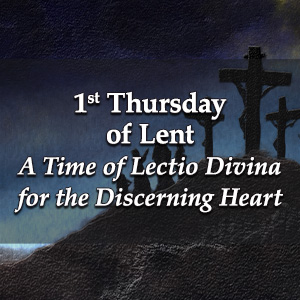 1st Thursday of Lent- A Time of Lectio Divina for the Discerning Heart Podcast
1st Thursday of Lent- A Time of Lectio Divina for the Discerning Heart Podcast
 For other audio recordings of various spiritual classics you can visit the
For other audio recordings of various spiritual classics you can visit the 
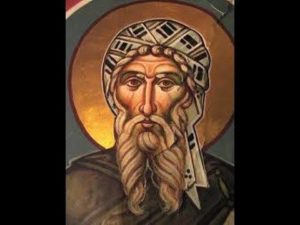
 Hadewijch of Antwerp, Teresa of Avila, Thérèse of Lisieux, Elizabeth of the Trinity, and Edith Stein are all women who have influenced the faith. Kris McGregor joins Steve and Becky Greene to discuss these extraordinary women and the second edition of Fr. Louis Bouyer’s book, Women Mystics.
Hadewijch of Antwerp, Teresa of Avila, Thérèse of Lisieux, Elizabeth of the Trinity, and Edith Stein are all women who have influenced the faith. Kris McGregor joins Steve and Becky Greene to discuss these extraordinary women and the second edition of Fr. Louis Bouyer’s book, Women Mystics.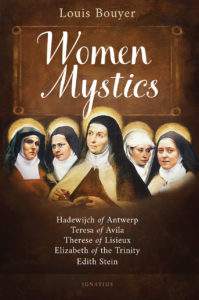 You can buy a copy of the book here.
You can buy a copy of the book here.
